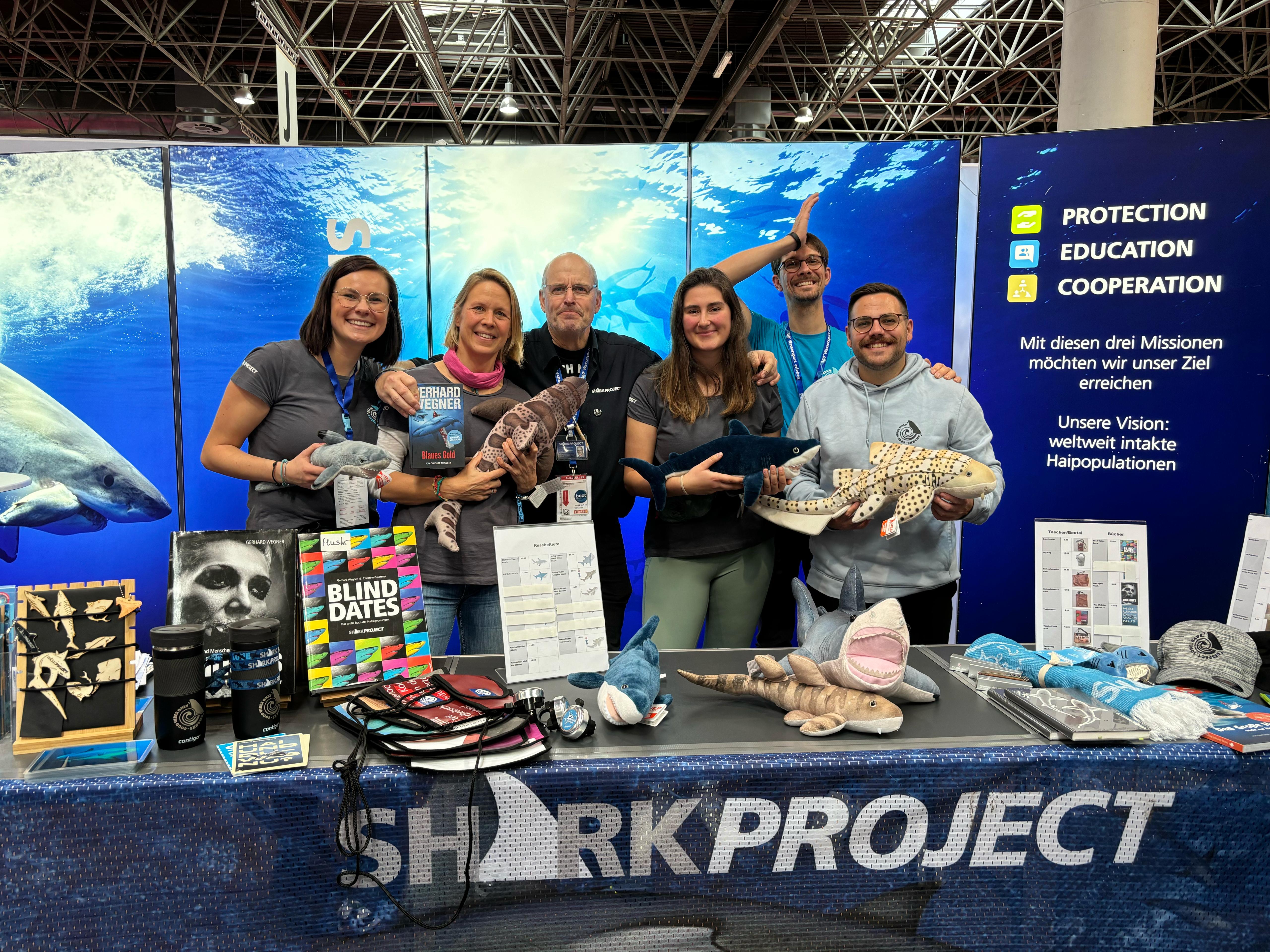

First successful trial of Sharkproject-funded device to analyze e-DNA
16. November, 2022
News from the "blue savannah"

© Lukas Müller
After graduating from his master of science in marine biology, Lukas Müller is now close to finishing his PhD-studies. As part of an international cooperation betweeen scientists and conservationists he now leads his own bull shark research project in Mozambique, studying the "Queens of the blue savannah".
Since 2019 – so for more or less 3 consecutive years – Lukas Müller has been traveling twice a year to Mozambique, passionately devoting his time and efforts to the conservation of sharks. As part of his PhD-studies he is focussing mostly on bull sharks in the Bazaruto National Park.
His main goal? To uncover distribution and movement patterns of sharks and other species threatened by extinction within and beyond the borders of the national park. Providing this kind of information is crucial to effectively monitor the area and prevent any harmful activities. Already during the beginning of the project, the collected data helped prevent a proposal to drill for fossil fuels in the area.
e-DNA sponsored by Sharkproject
Besides others, Lukas is also using the very modern and non-invasive approach of analyzing so called environmental-DNA (e-DNA) in order to investigate the spatio-temporal distribution of different species in the study area. Traditionally, this kind of data is acquired by deploying satellite and acoustic tags – two methods that inevitably require catching the animal. For the new method, this is not the case and Sharkproject is especially proud to support this innovative and non-invasive part of the project as we funded the procurement of the device needed to analyze the samples.
How does it work?
You have to imagine that each animal in the ocean leaves tiny organic traces behind which include our DNA. Capitalizing on this principle, scientists now are able to take water samples from different areas and filter these aforementioned traces. Using specialized filters even the tiniest DNA-material can be retained and analyzed in the lab. Comparing obtained sequences with already existing databases, Lukas and his team will be able to identify different species that regularly frequent certain habitats. Repeating this process over a prolonged period of time, the team will even get information about seasonal changes for example.
First trials - a success!
After having collected more than 200 samples, the funded device was put to the test for the first time during this summer. The team ran a series of trials in order to optimize the process and test the equipment. The test itself was a first success and the team was able to identify multiple species threatened by extinction, some of them critically. Among those species were different species of guitarfish, eagle rays, reef manta rays and of course bull sharks. In 2023 an expert from the Wageningen University will accompany Lukas to Mozambique in order to set up and prepare the analysis process over there. This allows the team to work more efficiently and analyze all remaining samples in “one go”.

© Lukas Müller

© Lukas Müller

© Lukas Müller

© Lukas Müller
Sneak peak – 2023
In 2023 the team plans to collect another 100 e-DNA samples in order to reach at least 300 samples in total. Additionally, the deployment of 17 acoustic and 6 satellite tags has resulted in the accumulation of more than 400,000 data points – now it is up to the team to analyze and interpret the findings. Next year will see the start of the arguably most exciting part of the project – the analysis and interpretation. Lukas and his team will slowly be able to put all the pieces of the puzzle together and identify the “hot-spots” in need of special protection.
If you have any questions about the project, please do not hesitate to contact our project leader Jan Bierwirth (j.bierwirth@sharkproject.org).
Check out the link below for more exciting information and insights into this Sharkproject supported project:


